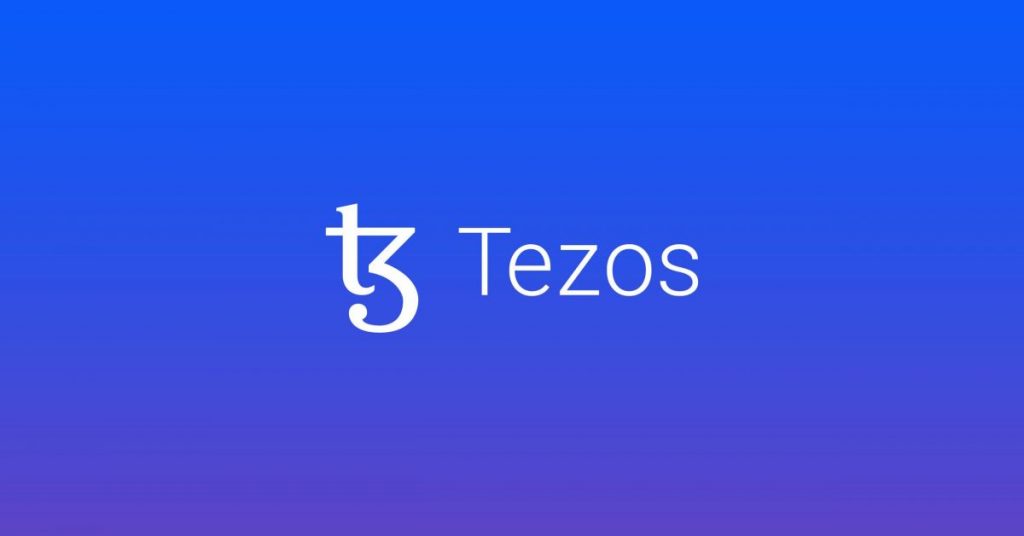Tezos

What is Tezos?
Tezos is a smart contract platform that uses PoS (proof-of-stake) consensus algorithm to issue new digital assets and create decentralized applications, which makes it different from other blockchains using the proof-of-work(PoW) consensus algorithm (e.g. Bitcoin).

Table of contents
Understanding of Tezos
Tezos also features formal verification, which mathematically proves the correctness of smart contracts, and baking, which allows Tezos token holders to earn rewards for participating in block production. Tezos’ self-amending protocol also enables Tezos to upgrade itself without hard forks.
Arthur and Kathleen Breitman, who go by the nom de plume L.M. Goodman, created Tezos in August 2014. The Breitmans later published the official Tezos white paper, which offered a description of the platform’s functionality utilizing its native currency XTZ.
According to the white paper, XTZ allows Tezos’ smart contract capabilities while also allowing investors to participate in on-chain governance. Tezos held an Initial Coin Offering (ICO) in July 2017, which raised $232 million, making it one of the largest ICOs at that time. Tezos launched its mainnet on September 17, 2018.
Tezos is unique among other smart contract platforms for a few reasons. First, Tezos uses PoS instead of PoW, which means that Tezos token holders can earn rewards for participating in block production, or “baking.” Second, Tezos features formal verification, which mathematically proves the correctness of smart contracts.
This means that developers can be confident that their Tezos smart contracts will work as intended. Finally, Tezos has a self-amending protocol, which enables Tezos to upgrade itself without hard forks. This means that Tezos can avoid the contentious hard forks that have plagued other blockchain projects.
What makes Tezos different?
The three main points that make Tezos different from other blockchains are:
Energy efficiency: Tezos’ PoS consensus algorithm is much more energy efficient than the PoW algorithm used by Bitcoin.
Formal verification: Tezos features formal verification, which mathematically proves the correctness of smart contracts.
Self-amending protocol: Tezos has a self-amending protocol, which enables Tezos to upgrade itself without hard forks.
Let’s dive into each of these Tezos differentiators a bit more.
Energy efficiency
The Tezos blockchain, for example, has a lower carbon footprint and consumes less energy than other blockchains. Because the PoS consensus mechanism is already in use, it uses less electricity than Bitcoin’s computer-driven PoW. In the Tezos network, baking is performed by Tezos tokens holders, which makes Tezos more energy efficient.
Baking rewards
Rather than staking, Tezos validates transactions through a method known as baking. Tezos token holders can participate in baking by delegating their tokens to a Tezos baker.
In return, the baker will pay the delegate a commission for their services. This commission is used to cover the costs of running a Tezos node and helps to secure the network.
Formal verification
Tezos also features formal verification, which means that developers can mathematically prove the correctness of their Tezos smart contracts. This is a unique feature that not many other smart contract platforms offer.
Self-amending protocol
Finally, Tezos has a self-amending protocol, which enables Tezos to upgrade itself without hard forks. This means that Tezos can avoid the contentious hard forks that have plagued other blockchain projects.
FAQs
Tezos is a decentralized smart contract platform that features formal verification, energy efficiency, and a self-amending protocol.
XTZ is Tezos’ native currency. XTZ allows Tezos’ smart contract capabilities while also allowing investors to participate in on-chain governance.
Tezos’ PoS consensus algorithm is more energy efficient than the PoW algorithm used by Bitcoin. Tezos token holders can participate in baking by delegating their tokens to a Tezos baker.
Tezos’ self-amending protocol enables Tezos to upgrade itself without hard forks. This means that Tezos can avoid the contentious hard forks that have plagued other blockchain projects.
Tezos features formal verification, which mathematically proves the correctness of smart contracts. This is a unique feature that not many other smart contract platforms offer.
Baking is Tezos’ method of validating transactions. Tezos token holders can participate in baking by delegating their tokens to a Tezos baker. In return, the baker will pay the delegate a commission for their services. This commission is used to cover the costs of running a Tezos node and helps to secure the network.
You can buy Tezos on a variety of exchanges, such as Coinbase, Binance, or Kraken. You can also purchase Tezos through a Tezos foundation-approved crypto wallet, such as Ledger or Trezor.
Tezos uses a method of validating transactions called baking. Tezos token holders can participate in baking by delegating their tokens to a Tezos baker. In return, the baker will pay the delegate a commission for their services. This commission is used to cover the costs of running a Tezos node and helps to secure the network.
Conclusion
Tezos is a unique smart contract platform that features energy efficiency, formal verification, and a self-amending protocol. Tezos token holders can participate in baking by delegating their tokens to a Tezos baker. In return, the baker will pay the delegate a commission for their services.
This commission is used to cover the costs of running a Tezos node and helps to secure the network. Tezos also features formal verification, which mathematically proves the correctness of Tezos smart contracts. Tezos’ self-amending protocol enables Tezos to upgrade itself without hard forks. This means that Tezos can avoid the contentious hard forks that have plagued other blockchain projects.
If you’re looking for a smart contract platform that is energy efficient, features formal verification, and has a self-amending protocol, then Tezos is the platform for you.
« Back to Glossary IndexDisclaimer
In line with the Trust Project guidelines, please note that the information provided on this page is not intended to be and should not be interpreted as legal, tax, investment, financial, or any other form of advice. It is important to only invest what you can afford to lose and to seek independent financial advice if you have any doubts. For further information, we suggest referring to the terms and conditions as well as the help and support pages provided by the issuer or advertiser. MetaversePost is committed to accurate, unbiased reporting, but market conditions are subject to change without notice.
About The Author
Damir is the team leader, product manager, and editor at Metaverse Post, covering topics such as AI/ML, AGI, LLMs, Metaverse, and Web3-related fields. His articles attract a massive audience of over a million users every month. He appears to be an expert with 10 years of experience in SEO and digital marketing. Damir has been mentioned in Mashable, Wired, Cointelegraph, The New Yorker, Inside.com, Entrepreneur, BeInCrypto, and other publications. He travels between the UAE, Turkey, Russia, and the CIS as a digital nomad. Damir earned a bachelor's degree in physics, which he believes has given him the critical thinking skills needed to be successful in the ever-changing landscape of the internet.
More articles

Damir is the team leader, product manager, and editor at Metaverse Post, covering topics such as AI/ML, AGI, LLMs, Metaverse, and Web3-related fields. His articles attract a massive audience of over a million users every month. He appears to be an expert with 10 years of experience in SEO and digital marketing. Damir has been mentioned in Mashable, Wired, Cointelegraph, The New Yorker, Inside.com, Entrepreneur, BeInCrypto, and other publications. He travels between the UAE, Turkey, Russia, and the CIS as a digital nomad. Damir earned a bachelor's degree in physics, which he believes has given him the critical thinking skills needed to be successful in the ever-changing landscape of the internet.



















































